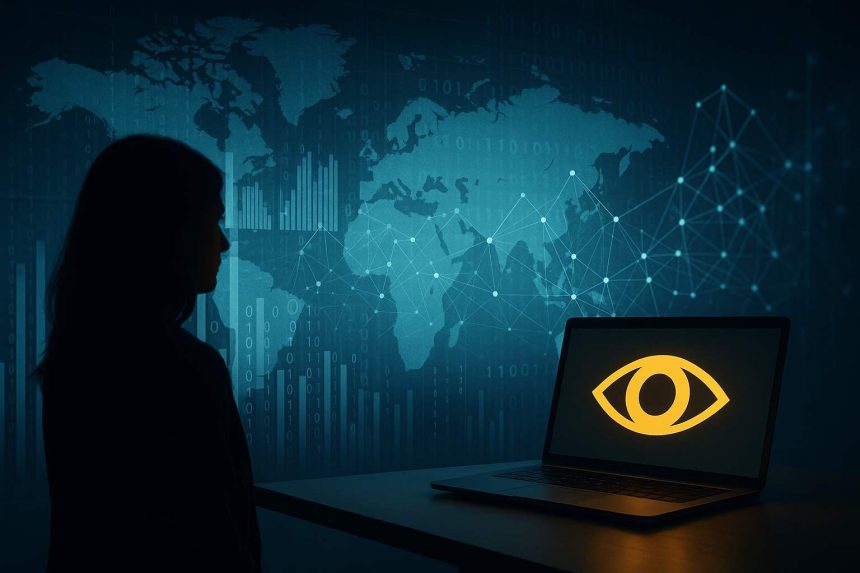A scandal that shook the digital world
In 2018, the Cambridge Analytica revelations hit global headlines.
What seemed like an abstract issue about “data privacy” quickly became a story of political manipulation, psychological profiling, and corporate irresponsibility.
For the first time, millions of people realized that their digital footprints could be used not just to sell them products — but to shape their worldview.
- A scandal that shook the digital world
- The beginning of public awareness
- Facebook’s reckoning
- The global ripple effect
- Redefining “consent” online
- Media literacy and skepticism
- The rise of data ethics
- Impact on elections and democracy
- The birth of the “data rights” movement
- The continuing relevance today
- A shift in public trust
The scandal was not just about one company; it was about an entire ecosystem that had grown unchecked for a decade.
Platforms collected user data, advertisers weaponized it, and regulators lagged behind.
The result: a crisis of trust that changed the Internet’s future forever.
The beginning of public awareness
Before 2018, few users questioned how social media platforms operated.
Clicking “accept all” on terms and conditions was a reflex, not a decision.
The Cambridge Analytica story — through whistleblowers like Christopher Wylie and Brittany Kaiser — changed that.
People learned that their likes, friends, and quiz results were not private.
They were being analyzed to build psychological profiles used in targeted political campaigns.
The idea that “you are the product” became a cultural wake-up call.
Facebook’s reckoning
The scandal forced Facebook into one of its most serious crises.
CEO Mark Zuckerberg testified before the U.S. Congress and the European Parliament, facing questions about transparency and user consent.
The company was fined $5 billion by the Federal Trade Commission (FTC), one of the largest privacy penalties in history.
More importantly, Facebook had to rebuild its image.
It introduced new privacy controls, data access tools, and transparency features for political ads.
Yet for many, the damage to trust was permanent.
The global ripple effect
The Cambridge Analytica fallout went far beyond Silicon Valley.
Governments worldwide started investigating how data was being used — and misused — by corporations and political consultants.
The European Union accelerated enforcement of the General Data Protection Regulation (GDPR), setting new global standards for data privacy.
In countries from India to Brazil, new data protection laws were drafted.
Tech companies began to realize that “move fast and break things” was no longer an acceptable philosophy.
Redefining “consent” online
One of the most significant consequences of the scandal was a shift in how users think about consent.
Companies could no longer hide behind vague terms of service or endless privacy policies.
The public started demanding clarity: What data is collected? How is it used? Who profits from it?
This cultural shift gave rise to the “privacy by design” movement — building systems that protect data by default rather than relying on user awareness.
It also inspired new business models centered on transparency and user control.
Media literacy and skepticism
The scandal also made people more skeptical of what they see online.
Many users began to recognize the power of algorithms in shaping information.
They learned to question targeted ads, viral posts, and even their own biases.
Schools, NGOs, and media outlets launched programs to teach digital literacy — how to verify sources, detect misinformation, and understand how social media algorithms prioritize content.
The rise of data ethics
In the wake of Cambridge Analytica, “data ethics” became a new professional discipline.
Companies began hiring Chief Privacy Officers and forming internal ethics committees.
Academics developed new frameworks for responsible AI and data use.
Ethical questions — once confined to philosophy departments — entered boardrooms:
Should companies collect data just because they can?
What obligations do they have toward users?
How can AI systems be fair, transparent, and accountable?
Impact on elections and democracy
The scandal raised uncomfortable questions about democracy in the digital age.
If voters can be microtargeted with emotional messages designed to manipulate behavior, is free choice still possible?
Cambridge Analytica revealed how easily data could undermine the democratic process.
Since then, election regulators have tried to catch up — introducing rules for political advertising, transparency, and funding.
But the challenge remains: technology evolves faster than policy.
The birth of the “data rights” movement
Cambridge Analytica didn’t just expose a scandal; it sparked a movement.
Around the world, activists began framing privacy as a human right.
Organizations like the Electronic Frontier Foundation (EFF) and Privacy International gained renewed relevance.
Data protection became a mainstream issue, not just for tech experts.
People began to see ownership of personal data as a form of empowerment — a new kind of digital sovereignty.
The continuing relevance today
Even years later, the Cambridge Analytica scandal continues to influence debates about technology and power.
As artificial intelligence becomes more integrated into society, the same questions reemerge: Who controls the data? Who benefits from it? And how do we ensure fairness?
The lessons learned from 2018 serve as a warning for future innovations.
The next “Cambridge Analytica” could involve deepfakes, algorithmic bias, or even neural data — unless strong ethical frameworks are in place.
A shift in public trust
Perhaps the most lasting impact of the scandal is the erosion of blind trust in technology.
The narrative of tech as an inherently positive force has been replaced with a more nuanced understanding: it can both empower and exploit.
This skepticism has fueled new expectations for accountability.
Companies are now judged not only by innovation but by how responsibly they handle user data.
Takeaway: The Cambridge Analytica scandal was more than a moment in tech history — it was a global turning point.
It transformed laws, business models, and public awareness.
Above all, it taught the world that data is power — and that power must always be questioned, regulated, and ethically managed.







